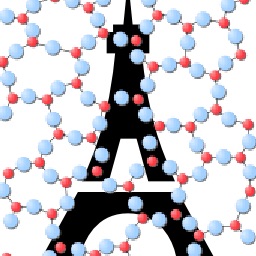Dissolution Kinetics of Hot Compressed Oxide Glasses
The chemical durability of oxide glasses is an important property for a wide range of applications and can in some cases be tuned through composition optimization. However, these possibilities are relatively limited because around 3/5 of the atoms in most oxide glasses are oxygens. An alternative approach involves post-treatment of the glass. In this work, we focus on the effect of hot compression on dissolution kinetics because it is known to improve, for example, elastic moduli and hardness, whereas its effect on chemical durability is poorly understood. Specifically, we study the bulk glass dissolution rate of phosphate, silicophosphate, borophosphate, borosilicate, and aluminoborosilicate glasses, which have been compressed at 0.5, 1.0, and 2.0 GPa at the glass transition temperature (Tg). We perform weight loss and supplementary modifier leaching measurements of bulk samples immersed in acid (pH 2) and neutral (pH 7) solutions. Compression generally improves the chemical durability as measured from weight loss, but the effect is highly composition- and pressure-dependent. As such, we show that the dissolution mechanisms depend on the topological changes induced by permanent densification, which in turn are a function of the changes in the number of nonbridging oxygens and the network cross-linking. We also demonstrate a direct relationship between the chemical durability and the number of chemical topological constraints per atom (nc) acting within the molecular network.
